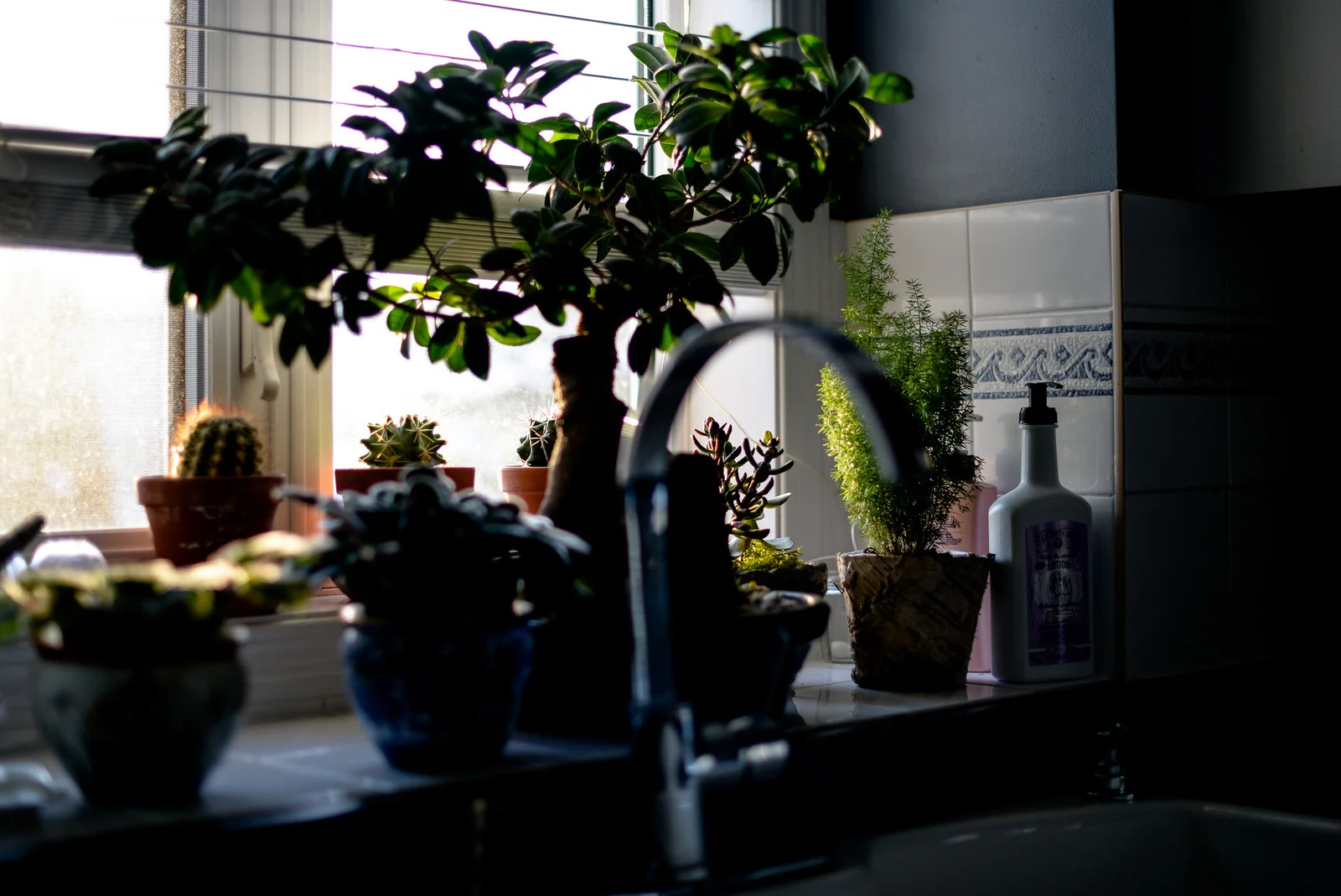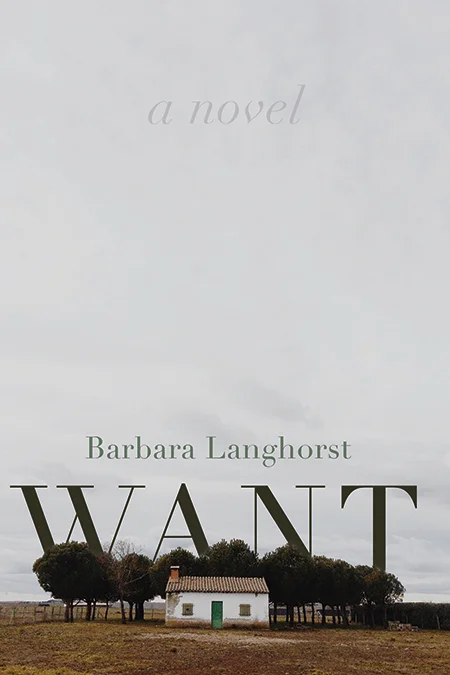My Kitchen Window
I keep coming back to the poetry of kitchens. I keep coming back to my kitchen window, however dirty it is. There’s not much of a view from this window. I can see into our neighbour’s backyard. There are a lot of suburban houses. But then I can see the sunrise, too, mostly. My kitchen isn’t fancy. No granite countertops and the tile floor is ugly. It’s not going to win any awards or be featured in a magazine. But a lot of stuff has been written at my kitchen table. I’ve daydreamed there. I’ve been happy in my kitchen.
I’m fond of poems that mention kitchens, so next, you’ll find a few.
The first poem begins with an amazing line…. “Where the immemorial and the instant meet…” There are several wonderful images – the knife dropping petals, the tofu which is a premonition of snow. We are here and not here, in the kitchen.
Mother, Kitchen
by Ouyan Jianghe
Translated from the Chinese by Austin Woerner
Where the immemorial and the instant meet, opening and distance appear.
Through the opening: a door, crack of light.
Behind the door, a kitchen.
Where the knife rises and falls, clouds gather, disperse.
A lightspeed joining of life and death, cut
in two: halves of a sun, of slowness.
Halves of a turnip.
A mother in the kitchen, a lifetime of cuts.
A cabbage cut into mountains and rivers,
a fish, cut along its leaping curves,
laid on the table
still yearning for the pond.
Summer’s tofu
cut into premonitions of snow.
A potato listens to the onion – counterpoint
of the knife, dropping petals at its strokes:
self and thing, halves of nothing
at the center of time.
Where gone and here meet, the knife rises, falls.
But this mother is not holding a knife.
What she has been given is not a knife
but a few fallen leaves.
The fish leaps over the blade from the sea
to the stars. The table is in the sky now,
the market has been crammed into the refrigerator,
and she cannot open cold time.
{source}
A kitchen can be for time travelling. It can be full of memories, ghosts, loss, and “housedresses of mist,” as in this next poem by Ted Kooser.
A Room in the Past
by Ted Kooser
It’s a kitchen. Its curtains fill
with a morning light so bright
you can’t see beyond its windows
into the afternoon. A kitchen
falling through time with its things
in their places, the dishes jingling
up in the cupboard, the bucket
of drinking water rippled as if
a truck had just gone past, but that truck
was thirty years. No one’s at home
in this room. Its counter is wiped,
and the dishrag hangs from its nail,
a dry leaf. In housedresses of mist,
blue aprons of rain, my grandmother
moved through this life like a ghost,
and when she had finished her years,
she put them all back in their places
and wiped out the sink, turning her back
on the rest of us, forever.
{source}
This next poem mentions the kitchen in a couple of lines. There is a failure to “make the kitchen better to work in” and “to have the money to buy a simple radio / to listen to while working in the kitchen.” The question is, how to separate our daily concerns from our poetry? Or, are they working together perhaps, is what I think happens. The poem ends with an unwashed window, the opening of it, the letting in of “you know who.”
Failures in Infinitives
by Bernadette Mayer
why am i doing this? Failure
to keep my work in order so as
to be able to find things
to paint the house
to earn enough money to live on
to reorganize the house so as
to be able to paint the house &
to be able to find things and
earn enough money so as
to be able to put books together
to publish works and books
to have time
to answer mail & phone calls
to wash the windows
to make the kitchen better to work in
to have the money to buy a simple radio
to listen to while working in the kitchen
to know enough to do grownups work in the world
to transcend my attitude
to an enforced poverty
to be able to expect my checks
to arrive on time in the mail
to not always expect that they will not
to forget my mother's attitudes on humility or
to continue
to assume them without suffering
to forget how my mother taunted my father
about money, my sister about i cant say it
failure to forget mother and father enough
to be older, to forget them
to forget my obsessive uncle
to remember them some other way
to remember their bigotry accurately
to cease to dream about lions which always is
to dream about them, I put my hand in the lion's mouth
to assuage its anger, this is not a failure
to notice that's how they were; failure
to repot the plants
to be neat
to create & maintain clear surfaces
to let a couch or a chair be a place for sitting down
and not a table
to let a table be a place for eating & not a desk
to listen to more popular music
to learn the lyrics
to not need money so as
to be able to write all the time
to not have to pay rent, con ed or telephone bills
to forget parents' and uncle's early deaths so as
to be free of expecting care; failure
to love objects
to find them valuable in any way; failure
to preserve objects
to buy them and
to now let them fall by the wayside; failure
to think of poems as objects
to think of the body as an object; failure
to believe; failure
to know nothing; failure
to know everything; failure
to remember how to spell failure; failure
to believe the dictionary & that there is anything
to teach; failure
to teach properly; failure
to believe in teaching
to just think that everybody knows everything
which is not my failure; I know everyone does; failure
to see not everyone believes this knowing and
to think we cannot last till the success of knowing
to wash all the dishes only takes ten minutes
to write a thousand poems in an hour
to do an epic, open the unwashed window
to let in you know who and
to spirit thoughts and poems away from concerns
to just let us know, we will
to paint your ceilings & walls for free
{source}
Lastly, one of my very best and longest standing friends wrote a novel, titled Want that has a kitchen at its centre. Here is the description of the novel from the publisher (which also happens to be my publisher):
“Delphine Almquist and her husband Hugo are living the hobby farm life of her dreams on the Canadian Prairies, far from the world of climate change concerns and global conflict. The only thing missing is a spectacular new kitchen, a tiny bistro to call their own. When she accidentally orders one online, her attempts to remedy the situation threaten her marriage to Hugo. The pressure explodes when her brother Paul arrives with end-of-the-world paranoia and plans to save the whole family on his hidden rustic homestead. As Del’s comfortable little world falls apart, she, Paul, and Hugo must work through layers of family conflict to reveal the secret that has entangled her family for generations. Funny and crisp, Want is the brilliantly relatable story of a woman who has to choose between a lifestyle she has always wanted and one that just may mean her family’s survival. Barbara Langhorst’s Want will keep you laughing and guessing until the end.”
Of the novel, Meira Cook says: “Want is an intimate meditation on our modern spiritual dilemma: what it means to both want and to be found wanting. Barbara Langhorst offers a witty account of interiors and interiority, an illumination of all the places we call home.” I couldn’t agree more.
What is your relationship to your kitchen? Is it the place you feel good in? Or is it more utilitarian?
Have you written about your kitchen? Tell me everything.








